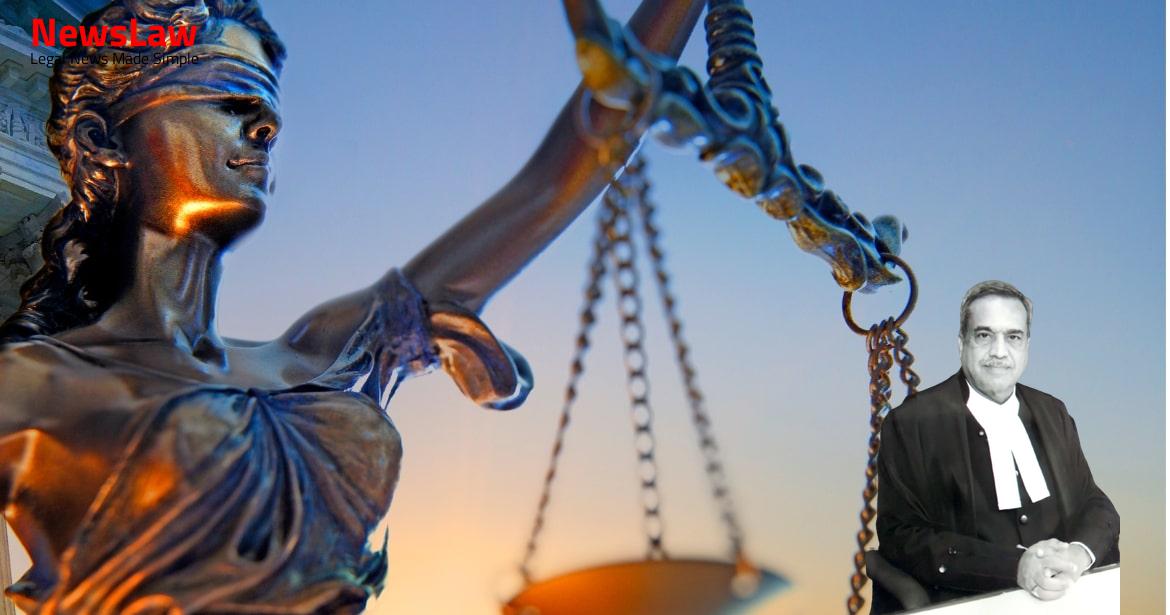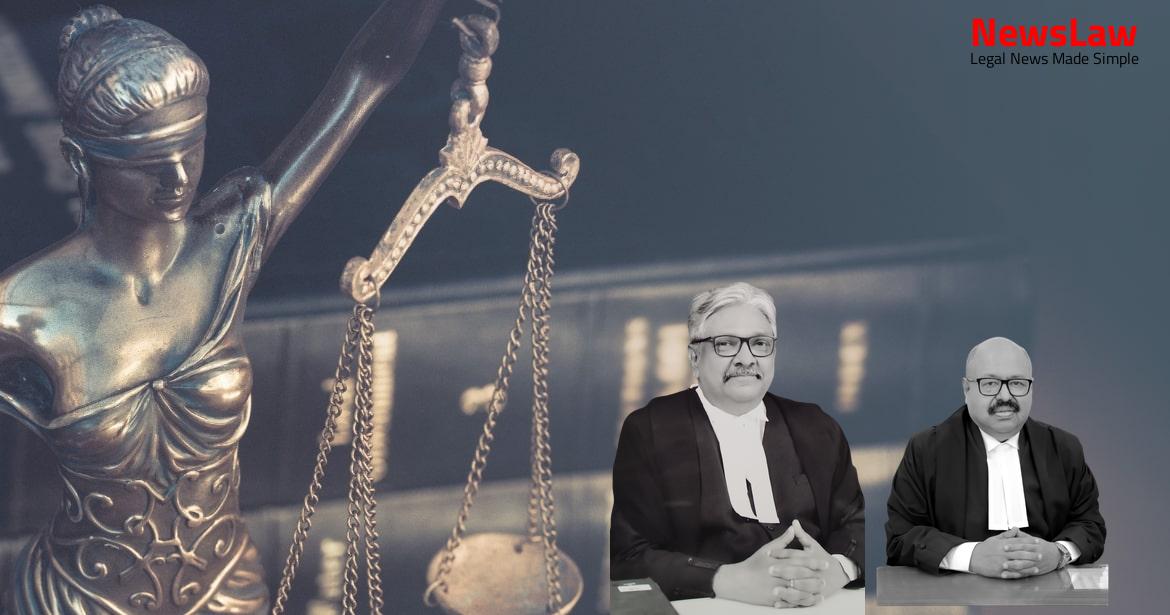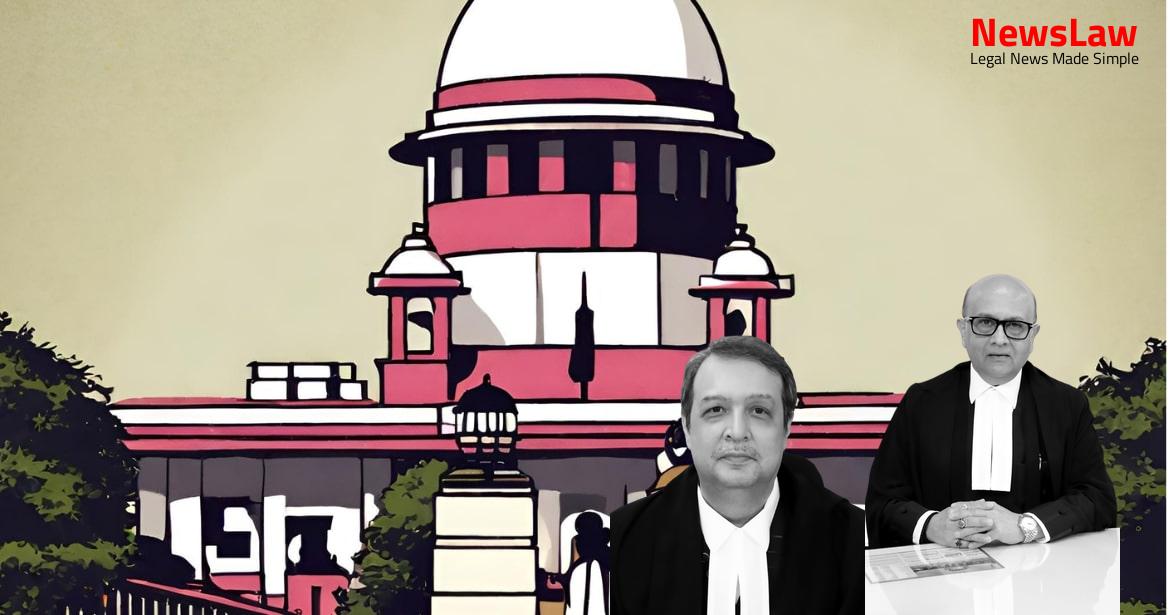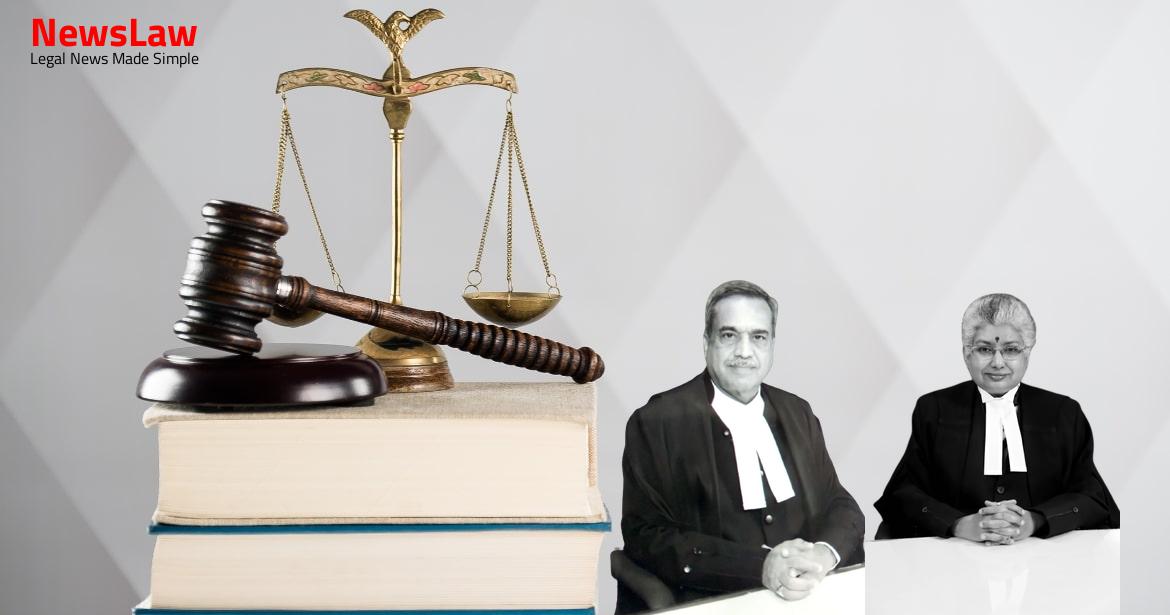Delve into the legal intricacies of a case where the court’s analysis of an Arbitration Award’s enforcement is under scrutiny. The focus is on understanding the nuances of court judgments within the framework of contract law and the limitations of enforceability when it comes to arbitral awards. Stay tuned to unravel the complexities of legal interpretation and execution in the realm of arbitration agreements.
Facts
- On 06.02.2006, the respondent filed an application to withdraw its Civil Suit No 60 of 1996.
- The Agreement dated 01.02.1980 between the parties referred their dispute to arbitration for determining compensation of land.
- The Arbitrator determined the market value of the land as on 27.11.1978.
- Civil Suit No 60 of 1996 was permitted to be withdrawn unconditionally by the respondent on 13.02.2006.
- The Award passed by the Arbitrator attained finality, and the parties were bound by its terms.
- The respondent sought specific performance of the Agreement dated 01.02.1980 by the appellant through the Civil Suit.
- The matter involved a dispute over the price of land spanning four decades.
- Various legal proceedings, including Civil Revision Petitions and Special Leave Petitions, were filed by both parties challenging different orders.
- The execution of the sale deed was a key point of contention between the parties.
- The communication of acceptance of the Award by the respondent was a significant event in the case.
- The respondent-Company filed Civil Suit No 60 of 1996 as a precaution but later withdrew it, indicating it was not an admission that the Award and subsequent orders were unsuitable.
- Civil Revision Petition 81 of 1995 was dismissed by Rajasthan High Court on 04.07.2016, more than a decade after the suit withdrawal.
- The price of the land in the Award was determined as of 27.11.1978, the agreed transfer date, not the sale deed execution date.
- Sole Arbitrator Justice Chandra Bhan Bhargav (Retired) determined the compensation amount for the land as Rs.12,18,700 on 09.06.1985.
- The acquisition challenged in the Special Appeal was allowed by Rajasthan High Court on 05.10.1976, quashing the proceedings.
- Respondent-Hindustan Engineering & Industries Limited and State of Rajasthan’s Special Leave Petitions challenging the High Court’s decision were dismissed by the Court on 29.3.1994.
- An agreement on the sale of land was reached on 27.11.1978, with approximately 104 bighas retained by the appellant and about 145 bighas to be sold to the respondent-Company, subject to arbitration.
- An Agreement dated 16.02.1979 between the appellant-firm and the respondent-Company was later replaced by another Agreement on 01.02.1980.
- Civil Revision Petition upholding the Additional District Judge-I’s order on 05.01.1995 was dismissed by Rajasthan High Court.
Also Read: Extension of Limitation Period in Legal Proceedings
Issue
- The issue in this case is whether the reference to the Arbitrator was solely for the fixation of the price of land as per the agreement dated 01.02.1980.
- It questions whether a direction to execute the sale deed could have been issued after the withdrawal of the specific performance suit by the respondent.
- The key point is whether an Arbitration Award determining compensation can be enforced as specific performance when the reference to the Arbitrator was only for fixing the price of the land.
- The case involves a partnership firm and its partners as the appellants.
Also Read: Quashing of FIR for Alleged Non-return of Stridhan Articles
Arguments
- The learned Senior Counsel for the appellants argued that the Agreement dated 01.02.1980 would only result in a concluded contract after the respondent-Company either consented to purchase the land at the fixed price or declined.
- The appellants were willing to compensate the respondent-Company for costs and expenses as per the court’s order.
- The Executing Court overstepped its jurisdiction by ordering the execution of the sale deed, which was not part of the Arbitration Award.
- The non-registration of the Agreement and the withdrawal of the specific performance suit by the respondent-Company were reasons why the execution of the Agreement could not be passed.
- The appellants contended that the power of the Executing Court was to only interpret the Award and not go beyond it.
- The respondent-Company withdrew the specific performance suit based on legal advice as the petition for execution of the Award was already pending.
- The appellants never challenged the validity of the Agreement during the proceedings.
- The fixation of the land price by the Arbitrator was deemed unreasonable given the current market value of the land.
- The respondent-Company believed the execution of the Agreement based on the Arbitrator’s price determination was justifiable and in line with the 1980 agreement.
- The respondent-Company insisted that no enforceable right existed even at the time of the Award due to the pending contractual obligations post-Arbitration.
- Learned Senior Counsel for the respondent contended that the appeal lacks merit and should be dismissed.
- Respondent-Company suggested that they would be willing to deposit Rs.60 lacs to settle the litigation with the appellants.
- Respondent-Company did not admit any wrongdoing by agreeing to the suggestion.
Also Read: Judicial Review & Procedural Fairness in Disciplinary Matters
Analysis
- The executing court and High Court erred in directing the respondent’s promotion to Chief Manager in the execution case.
- The right to enforce the Agreement could only arise after the respondent exercised the option to purchase the land at the price fixed by the Arbitrator.
- The respondent abandoning the claim for execution of the sale deed in terms of the Agreement dated 01.02.1980 indicated the abandonment of the claim for execution of the sale deed.
- The Award by the Arbitrator was solely for the fixation of the price of the land as per the Agreement dated 01.02.1980.
- The Award did not contain any direction for the execution of the sale deed; hence, directing the execution of the sale deed in terms of the Award was incorrect.
- The withdrawal of the suit for specific performance ended the matter regarding the execution of the sale deed as per the Agreement dated 01.02.1980.
- Execution of the Award could only be to the extent of what was awarded; the execution of the Agreement was necessary, not the Award.
- The executing court cannot go beyond the decree; in this case, it erred in directing the execution of the sale deed based on the Award.
- No equity was in favor of the respondent as no amount was paid or deposited by them for the execution.
- The executing court went beyond its jurisdiction by granting interests not provided in the award.
- The reference to the Arbitrator was solely for the determination of the price of the land, not for enforcing any sales agreement beyond the price determination.
- Execution proceedings are conducted to enforce the verdict of the Court.
- Executing court is only concerned with the execution part of the decree and must take the judgment at face value.
- A declaratory decree only declares the rights of the decree holder and does not direct the judgment-debtor to perform specific acts.
- Interpreting a decree may require looking into the pleadings and judgment if its terms are ambiguous.
- Executing court cannot grant any relief that does not directly flow from the declaratory decree.
- In cases where execution prayed for goes beyond what was decreed, the court may refuse such execution.
- Non-registration of certain awards may impact their enforceability under the law.
- The decision of this Court in the case of Bhavan Vaja vs Solanki Hanuji Khodaji Mansang has been relied upon by learned Senior Counsel for the respondent.
- It has been held in the above case that for construing a decree, the Court can and should, in appropriate cases, take into consideration the pleadings as well as the proceedings leading up to the decree.
- The Court often has to ascertain the circumstances under which the words in a decree were employed in order to find out their meaning.
- The Award of the Arbitrator was not a conclusive contract between the parties
- The Award could not be directly executed as a contract
- Further negotiations or agreements may be required for execution
Decision
- The impugned judgment of the Rajasthan High Court dated 04.07.2016 is quashed and the appeal is allowed.
- The appellant agreed to pay the respondent a determined amount towards the cost of litigation and other expenses.
- A declaration under Section 6 of the Act of 1953 was issued by the State of Rajasthan on 13.09.1975.
- The appellant firm purchased 249.60 bighas (approx. 100 acres) of land in 1966.
- The acquisition proceedings for the land were quashed on 05.10.1976 by the Division Bench of the Rajasthan High Court.
- The parties reached an agreement in 27.11.1978 for the sale of 145 bighas of land to the respondent, subject to arbitration for price fixing.
Case Title: FIRM RAJASTHAN UDYOG Vs. HINDUSTAN ENGINEERING AND INDUSTRIES LTD. (2020 INSC 362)
Case Number: C.A. No.-002376-002376 / 2020



